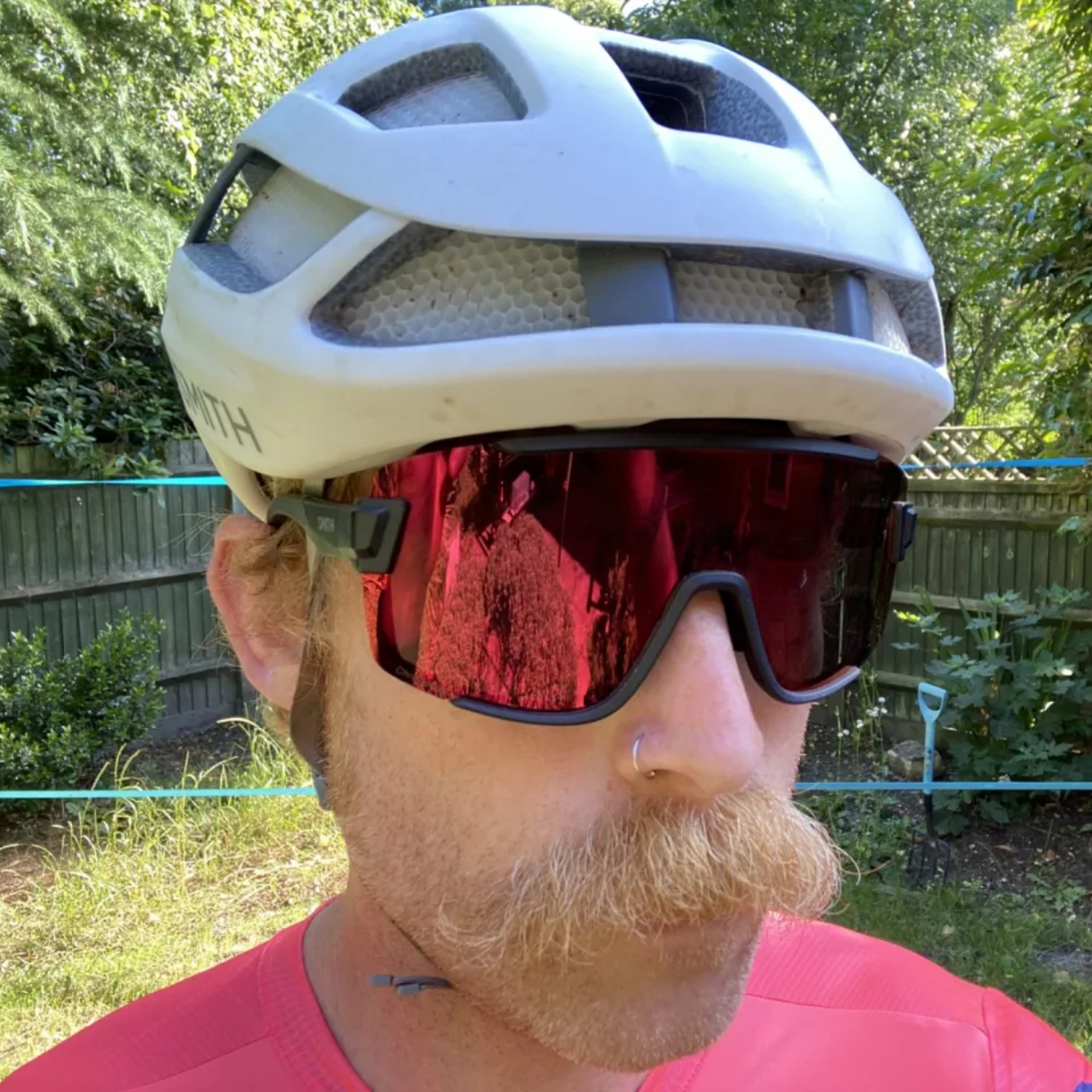Why do disc brakes squeal?
Disc brakes offer safer stopping but there can be a big drawback, noise.
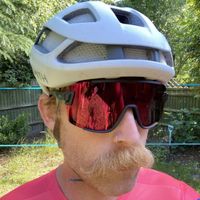
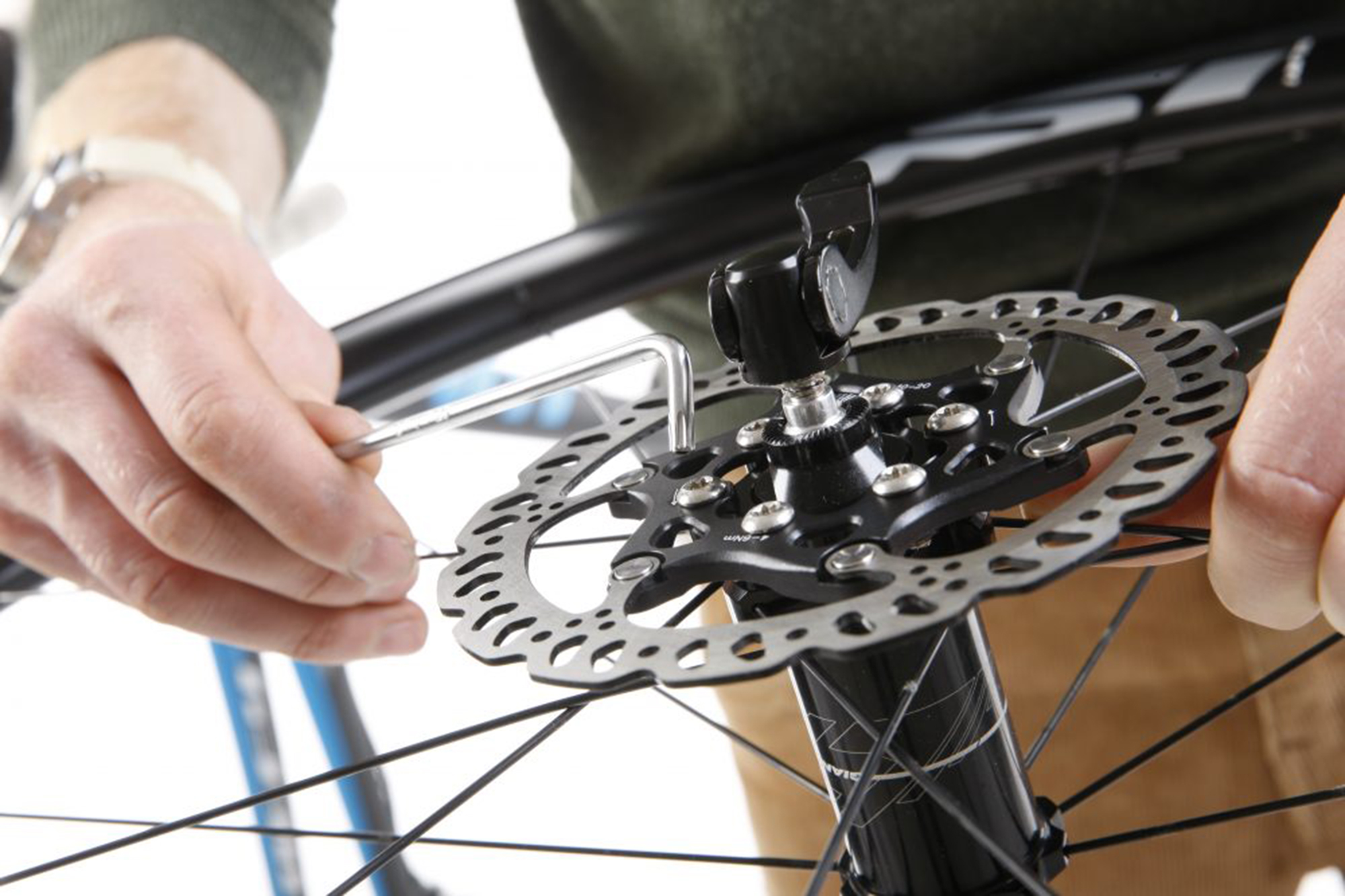
There’s no denying that disc brakes hold a lot of performance benefits over rim brakes and anyone that has used them can’t help but be impressed by the levels of power and control the technology can provide the rider. But as many rider can attest to, a disc brake can have one major chink in it's armour...
One of the biggest issues that users of disc brakes complain about has to be the incredibly annoying noises that can plague the rider whilst braking. These noises often occur when riding in wet conditions but for some it can be an everyday occurrence. At best it’s a noise that annoys, at worst it can signify there’s something wrong with your brake system. Possibly an issue that could lead to a dangerous malfunction.
The reason why your disc brakes end up making such a racket is simply down to vibrations within the system; specifically the callipers and disc rotors. Vibrations are present in almost every brake system but it’s when the vibration oscillations increase in speed to a point at which the frequency becomes audible to the human ear that it becomes an issue.
A well set up and properly performing disc brake system has little chance for any vibrations to propagate and become an issue. Therefore the aim for any rider suffering from the dreaded disc brake squeals of doom is to eliminate anything that might be the cause of said vibrations. It's also true that some pads are more prone to squeal than others, so check out our guide to the best brake pads for road and gravel if you think a swap-out might alleviate the problem.
How to bleed your Shimano disc brakes
The causes
The good news is tracking down the cause of vibrations is actually quite simple. We spoke to Robin Godding from British brand Hope to find out just why disc brakes cause such an issue. Hope is a brand synonymous with UK made performance hydraulic brakes for both road and mountain bikes, so it knows a thing or two about creating a perfectly functioning brake system.
The latest race content, interviews, features, reviews and expert buying guides, direct to your inbox!
Godding explained that the causes could be broken down into just two types, “If your brakes are making a noise it could be down to contamination of the pads and/or rotors, normally from dirt, oil or any other type of contaminant. This would be anything picked up from the trail or road or, in some instances if piston seals are worn and oil is leaking. In simple terms, the more you ride your bike the higher the likelihood that its brakes will begin to suffer from brake squeal.
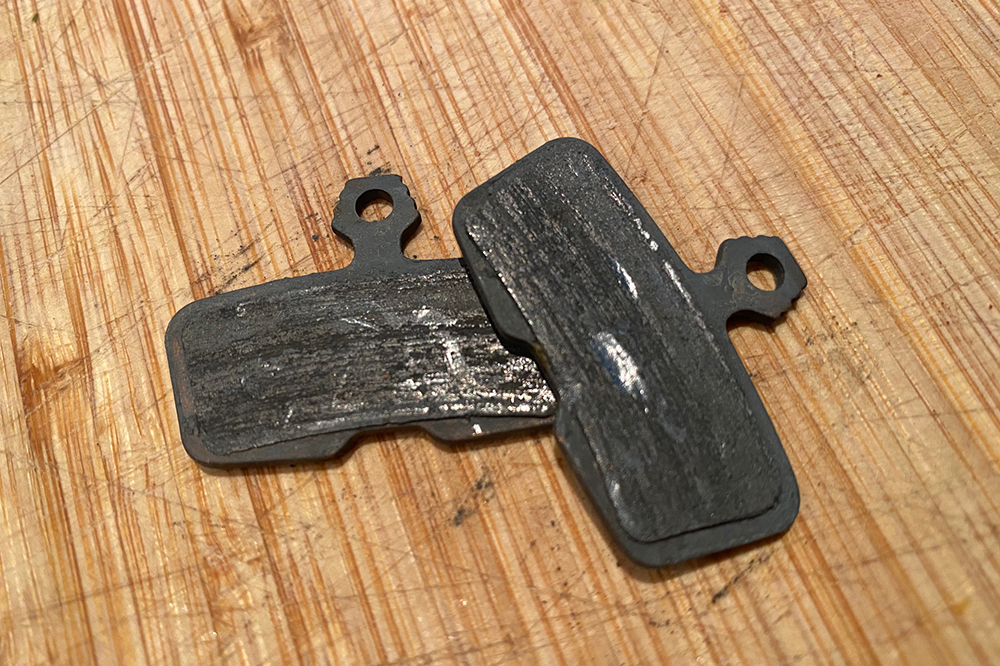
Dirty or glazed pads can be a big cause of excessive brake noise.
The second reason for brake squeal is in the actual set up of the brake. If the pads and/or callipers aren’t aligned properly it can cause noise-inducing vibrations. The same can happen if bolts and other fitments aren’t tightened correctly”. In simple terms, dirt and improper maintenance are the killers of the disc brake system.
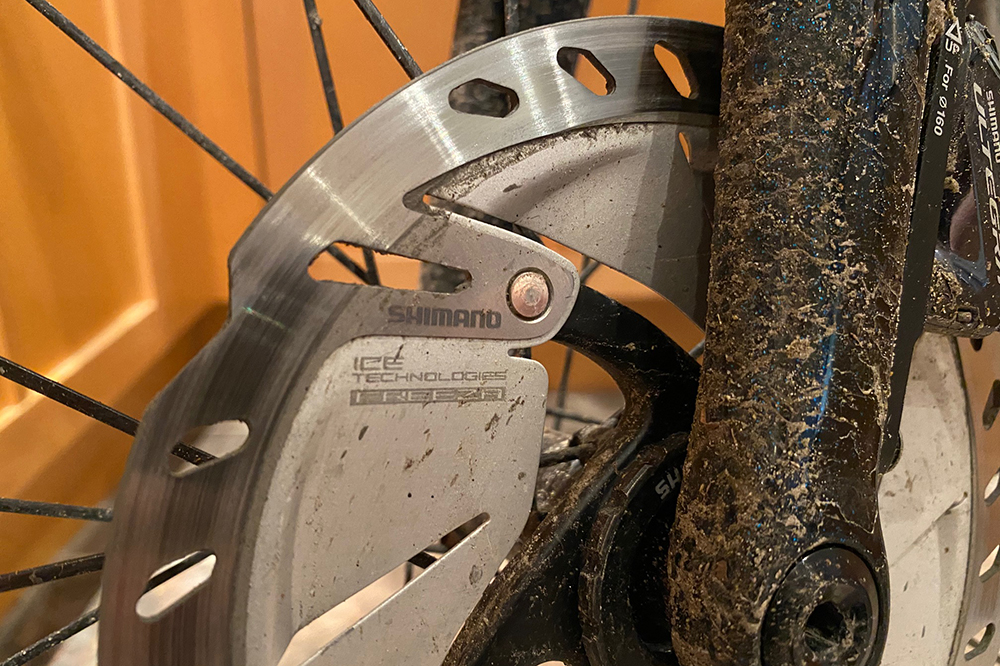
Same goes for the rotors.
What can be done?
Fundamentally the issue of excessive brake noise can be rectified relatively easily once you are aware of the causes. The majority of mechanics are in agreement that all it should need is a little bit of time and patience to go through some simple maintenance steps to eliminate the causes.
Addressing the initial cause the simplest solution and often the most effective according to Godding is to clean the brake system focussing primarily on the rotors and brake pads themselves. In this instance you will need to use a specific disc brake cleaner; one that has an isopropyl alcohol base ensuring it evaporates and doesn’t leave behind any excess residue. Apply liberally to the rotors and wipe off with a clean cloth. Also check for any bend or warping of the rotor that can reduce brake effectiveness and reduce the ability for you to align everything perfectly.
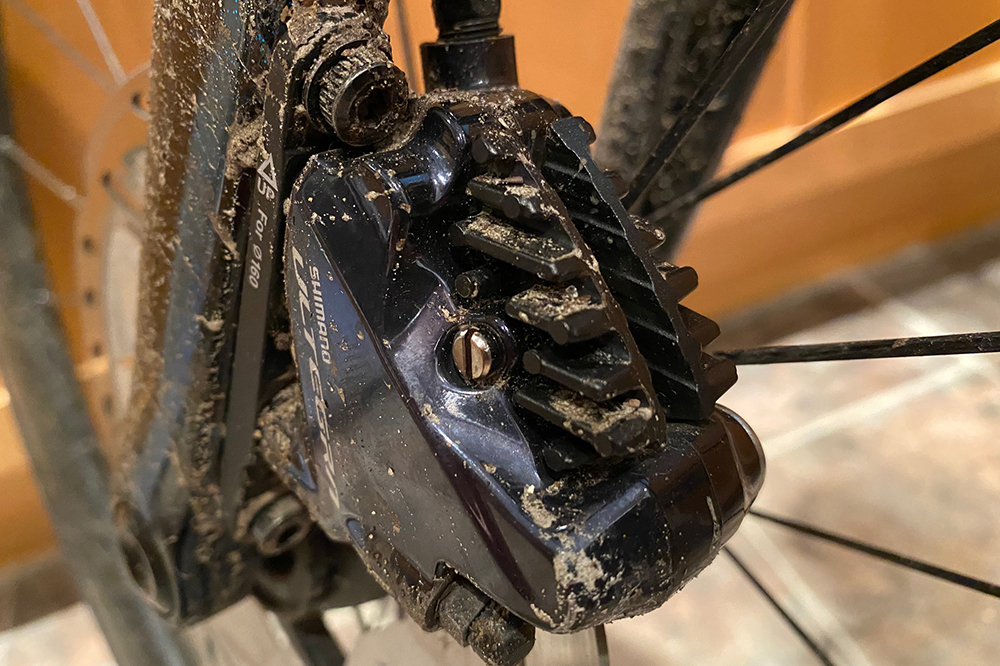
If your brake looks like this then the first step is cleaning with an appropriate disc brake cleaner.
For the pads you will ideally need to remove them from the brake calliper to visually inspect and clean. Often contaminants or a lack of proper bedding in of the pads will lead to the surface appearing shiny or ‘glazed’. This occurs when heat builds up and polishes the pad surface. If your pads are glazed they will not work effectively and of course lead to excess noise. A simple rub with some sandpaper to roughen the surface will ensure the pads will work effectively again. If they appear to be contaminated with brake fluid or any form of lubricant they will unfortunately need to be replaced immediately as no amount of cleaning will enable them to work effectively.
Whilst the pads are out it is a good idea to clean and inspect the calliper to see if there are any signs of brake fluid leaking from the pistons or if the seals look worn. Any sign of a leak might require further work being undertaken to resolve the issue. A competent home mechanic will be able to work on many of the hydraulic brake systems found on road bikes today but it advisable to take to your local bike shop for advice if you are unsure.
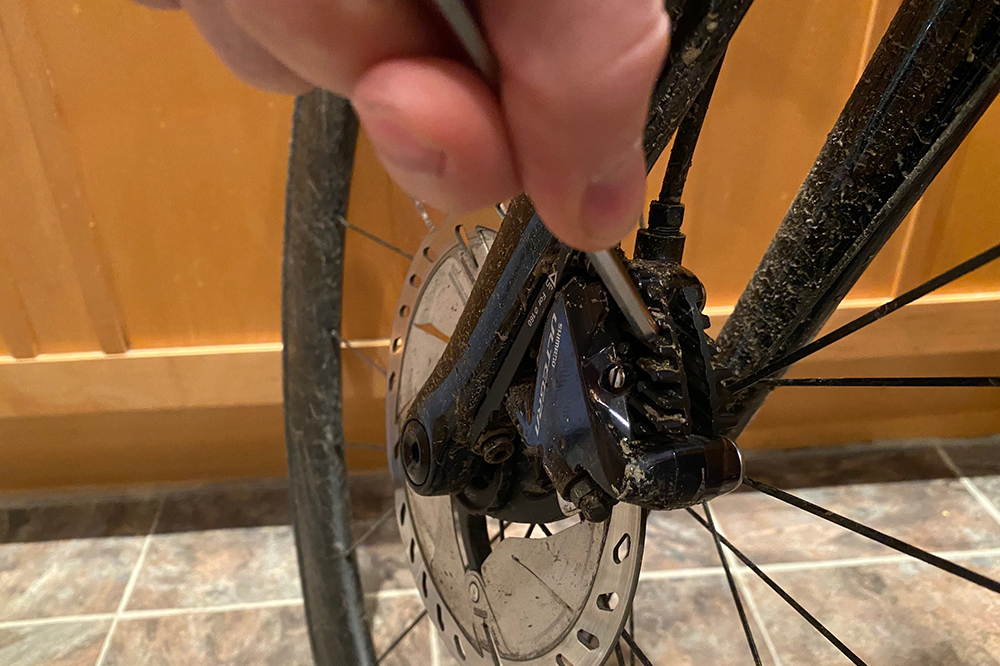
Realigning the two bolts holding the calliper in place will ensure the rotor runs evenly between the pads.
Just as with a rim brake, disc brakes need to be aligned correctly to work effectively. This requires the disc rotor to be centred between the brake pads for both pads to touch at the same time and with the same force. We recommend this simple tip to quickly align the calliper - loosen the calliper mounting bolts just enough to allow the calliper to move freely, spin the wheel and then pull and hold the brake lever. With the brake lever held in, carefully tighten the mounting bolts ensuring the calliper doesn’t move whilst tightening. Release lever and the brake pads should be centred. Repeat if necessary.
Hopefully if you follow the advice given you should banish excessive brake squeal and ensure you keep getting invited to ride with your friends.
James Bracey's career has seen him move from geography teacher, to MBR writer, to Cycling Weekly's senior tech writer and video presenter. He possesses an in-depth knowledge of bicycle mechanics, as well as bike fit and coaching qualifications. Bracey enjoys all manner of cycling, from road to gravel and mountain biking.
